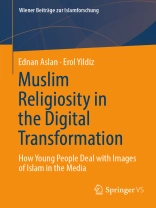The effects of social media can be observed particularly in relation to the religious commitment and religious practices of young people – who today are summarized under terms such as ‚internet generation‘, ‚media generation‘ or ‚digital natives‘. Online media exert a major influence on their lives, their understanding of the world, their religious orientations and actions. Their identity constructions, their cultural and religious orientations are closely intertwined with social media. This is precisely where the present study started with the question of what subjective consequences interaction on the social web has for the religious orientations, practices and self-conceptions of Muslim young people in Austria. The focus was on the connections between media use, media images of Islam and lived religiosity. On the one hand, the results show that the use of social media creates objective spaces of opportunity that can go hand in hand with an expansion of individual scope for action, whereby religious authority is increasingly being questioned. On the other hand, the study also shows that the use of digital media can also lead to a narrowing of individual religious orientations.
Inhaltsverzeichnis
Introduction.- Media and Religion. Selected Theoretical Perspectives.- Research Design and Methods.- Media and Everyday Religious Practice – Results of Interviews.- Religiosity in the Digital Transformation.- Practical and Pragmatic Conclusions from the Study.
Über den Autor
Dr. Ednan Aslan is University Professor for Islamic Religious Education at the Institute for Islamic-Theological Studies at the University of Vienna.
Dr. Erol Yildiz is University Professor for Migration, Education and Diversity at the Faculty of Education at the University of Innsbruck.












